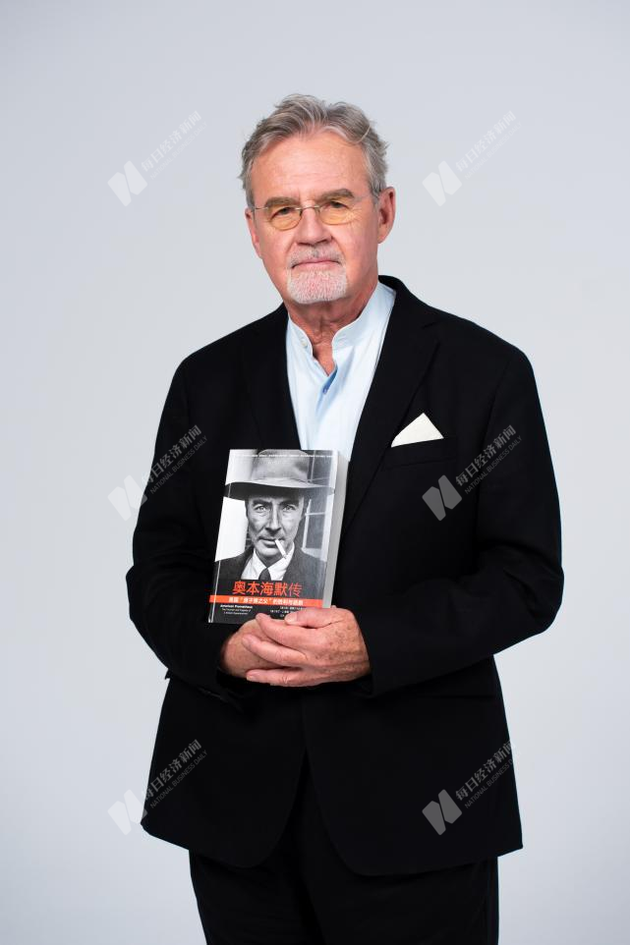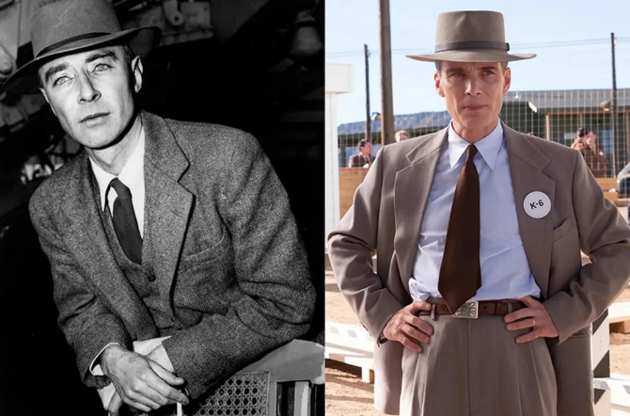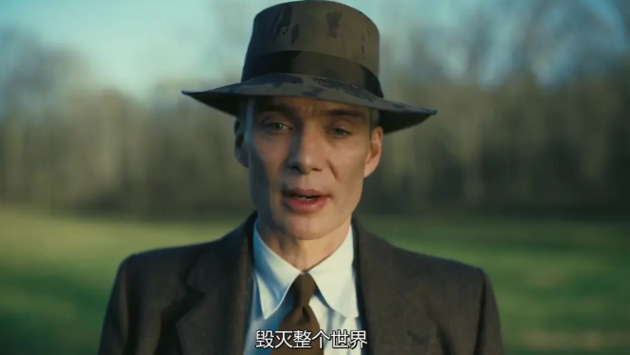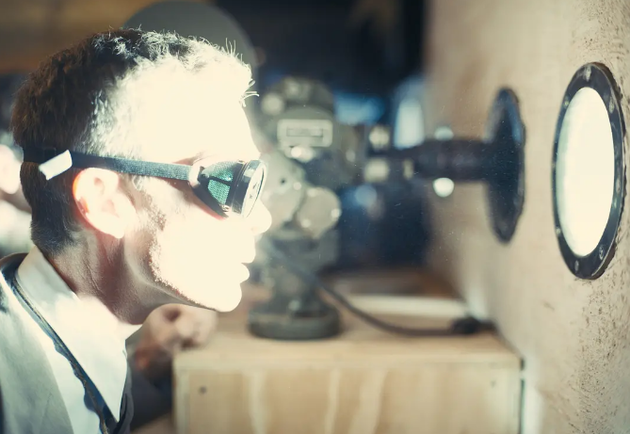On March 11th, the 96th Academy Awards (also known as the Oscars) took place at the Dolby Theatre in Los Angeles, California. Christopher Nolan's biopic "Oppenheimer" won seven major awards at the ceremony - Best Picture, Best Director, Best Actor, Best Supporting Actor, Best Original Score, Best Cinematography, and Best Film Editing.
This is the first Oscars win for Christopher Nolan. The success of this film cannot be separated from the original biography behind the film, American Prometheus: The Triumph and Tragedy of J. Robert Oppenheimer, written by Martin Sherwin and Kai Bird.
Nolan expressed his deep respect and gratitude to Kai Bird, who is also the screenwriter of the film.
On the eve of the Oscars ceremony, National Business Daily had an exclusive interview with Kai Bird, listening to him recount interesting anecdotes from his biography writing process and collaboration with Nolan. Kai Bird also discussed how the humans should navigate through each new "Oppenheimer moment" when faced with them.

Kai Bird / Photo provided by the interviewee to NBD
Here's the content of the interview presented in a first-person narrative:
Nolan's film can teach the Hollywood how to do serious films
I'm biased. I have hopes that the film can win more Academy awards.
This film not only delves into the historical events of World War II and numerous scientists, but more importantly, it's a brilliant piece of art on the screen. "Oppenheimer" is a story that explains our current world, a world where we're still living in the atomic age, we're still living with nuclear weapons and the danger.

J. Robert Oppenheimer (L), Stage photo (R)
"When you have an ideal, beware the day it comes true," because it might be terrifying, far beyond your expectations. The power of nuclear weapons far exceeded J. Robert Oppenheimer's initial calculations, and the casualties in Hiroshima and Nagasaki were several times higher than anticipated. The real challenge lies not in the atomic bomb's chain reaction itself, but in the complex catalysis it triggers on political, diplomatic, and societal levels, something a physicist cannot control, turning his "dream" into a nightmare the moment it materializes.
This is a complicated mystery story in terms of the history.
The success of Nolan's film will teach Hollywood and other film industry around the world that they should pay attention to trying to do serious films about real history, about real human stories, and not just super action heroes.
Being called "the father of the atomic bomb" is a tragedy for Oppenheimer
J. Robert Oppenheimer was painfully aware that if he was successful, it would be used on a whole city. And most of the victims would be innocent civilians, women, children, and old men. And because there is no target, no military target.
It's a very, very difficult philosophical problem. And he knew he was pained by the thought that everyone would regard him as "the father of the atomic bomb". He said this was a weapon of terror. He didn't want to be "the father of a weapon".

Screenshot of "Oppenheimer"
For Oppenheimer, the atomic bomb not only destroyed the world but also his personal life.
9 years later, he was put on trial in a secret court in a security hearing. And he was humiliated. And he fell under suspicion of being disloyal, not a patriotic American, they decided to take away his security clearance and then to further humiliate him. In the public eye, they leaked the transcript of the security hearing to the newspapers.
And his private life was open to the public. And he fell under suspicion as maybe a spy or maybe disloyal. This is a terrible blow. Oppenheimer became a wounded personality after this for the rest of his life.
Artificial intelligence is another "Oppenheimer moment"
We lives in an international community that is drenched in science and technology and computers and now artificial intelligence. And so the scientists who are behind the revolution in artificial intelligence, all these breakthroughs that they're making, are talking about this as an "Oppenheimer moment" themselves.
It's very difficult for us to understand how quickly the world is changing, and it's gonna change even faster in the next 10, 20, 30 years. So we need scientists who both understand the science and technology and the human condition can speak to us in plain language.

Screenshot of "Oppenheimer"
Now, artificial intelligence is another "Oppenheimer moment" for the humans. Sam Altman, one of the creators of artificial intelligence, has been saying we're at the beginning of the revolution in this new kind of science, artificial intelligence, and he always compares artificial intelligence to nuclear weapons created by Oppenheimer.
We should be asking some of the tough questions about how to attain this new technology, make it more human, make it integrated into society in a humane way. For instance, I think this means we need to come up with rules and regulations about privacy.
Christopher Nolan doesn't own a smartphone and he doesn't use email.
All of his movies have been interested in the theme of time and space, and even his earliest movie memento. He's been interested in science fiction. He pays attention to new technologies and is not oblivious to the internet, he just refuses to be led by the inertia of swiping phones, which chops up his time and attention into fragments.
Christopher Nolan, who doesn't use a smartphone, has directed imaginative and technologically advanced films like "Memento," "Inception," "Interstellar," "Dunkirk," and "Oppenheimer."


 川公网安备 51019002001991号
川公网安备 51019002001991号





